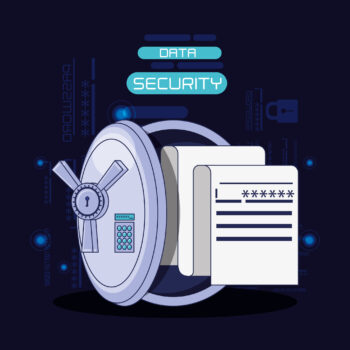In today’s digital world, protecting sensitive information is one of the most critical responsibilities in an office. Whether it’s financial records, client details, or proprietary business data, a single breach can lead to severe consequences—both financially and reputationally. Here’s how you can play an active role in safeguarding data and maintaining confidentiality:
- Understand the Stakes
Cybersecurity isn’t just an IT issue—it’s a business issue. A breach can result in fines, lawsuits, and a loss of trust from clients and employees. When you see security as an integral part of operations, you can approach it with the urgency it requires.
- Educate Your Team
One of the biggest cybersecurity threats is human error. Phishing emails, weak passwords, and accidental data sharing are common risks. Train your team regularly on identifying scams, using strong passwords, and securely handling sensitive information.
- Implement Access Controls
Not everyone in the office needs access to all data. Use permissions to limit access based on roles. For example, financial information should only be accessible to specific team members, and confidential client files should have restricted visibility.
- Stay Up to Date on Software and Tools
Outdated software is a hacker’s playground. Ensure that all operating systems, applications, and antivirus programs are updated regularly. Work with your IT team to schedule automatic updates and patches for all devices.
- Use Secure Communication Channels
Confidential information should never be sent over unsecured channels. Use encrypted email services or secure file-sharing platforms to ensure that sensitive data doesn’t fall into the wrong hands.
- Have a Data Backup Plan
Even with the best defenses, breaches and failures can happen. Regularly back up your data to a secure location—whether it’s a cloud service or an offsite server. Test your backups periodically to ensure they can be restored when needed.
- Enforce a Clean Desk and Screen Policy
Confidentiality applies to physical spaces, too. Encourage your team to clear desks of sensitive documents at the end of the day and lock away any important files. Also, implement a policy for locking screens when stepping away from computers.
- Audit and Monitor Data Use
Regularly review who has access to what and monitor data usage for unusual activity. If someone is accessing files they don’t typically work with, it could be a sign of a potential security issue.
- Develop an Incident Response Plan
Despite your best efforts, breaches can still occur. Have a clear, documented plan for responding to incidents, including who to notify, how to mitigate damage, and steps for recovery. Being prepared can make all the difference in minimizing the impact.
- Partner with IT Experts
You don’t have to do it alone. Work closely with your IT team or an external cybersecurity provider to ensure your office has the latest protections in place.
Cybersecurity and confidentiality aren’t just technical responsibilities—they’re operational priorities. By taking an active role and involving your team, you’ll help create a culture of security that protects your office’s most valuable asset: its data.
